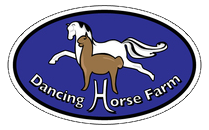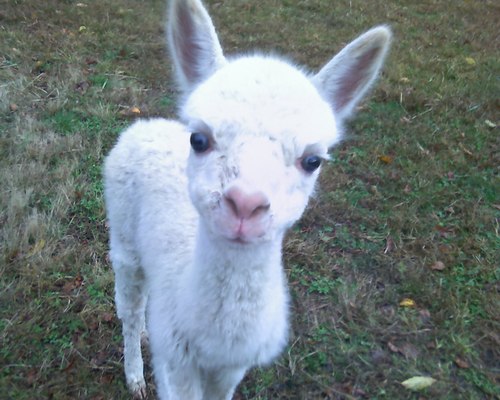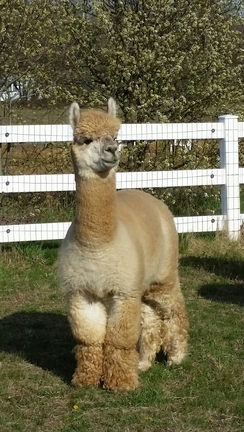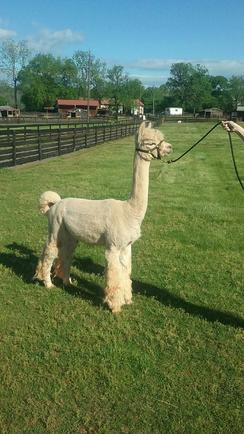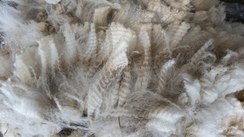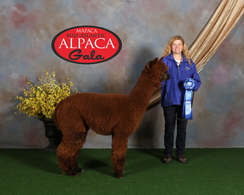What Is An Alpaca?
Alpacas are South American camelids, cousins to the larger framed llama and smaller deer-like vicuna. The majority of alpacas come from Chile, Bolivia, and the mountains of Peru. In Peru, native Indians, called the Quechua Indians maintain and preserve wild alpaca herds. Alpacas were first imported into this country in the mid 1980's. With the threat of mad cow disease and other deadly infectious diseases, however, today the US borders are closed to livestock importation.
There are 2 species of alpacas; the fuzzy, teddy bear-like huacayas and the sleek haired suris which have long dread locks. Suri alpacas are extremely rare and are considered to be a protected species. There are estimated to be fewer than 400 in the US and less than a few thousand world-wide. At Dancing Horse Farm, we maintain a herd of selected Peruvian huacaya alpacas.
Alpacas in this country are strictly fiber animals. They are shorn once per year, usually in late spring. This is to remove the heavy weight of fiber growth and permit the animals to live comfortably in our hot and humid climates. Alpaca fleece, or “fiber” comes in 24 natural colors and is closest in comfort feel to cashmere. The raw fiber is spun into yarns which in turn is used to make higher end, hard to find garments and home accessories. It’s no wonder that alpaca is referred to as the fabric of Kings!
On our farm, fiber is harvested during a huge annual celebration we call “Fur Fest”. We then send the fiber to locally run mills, or micromills, that specialize in high-end fiber processing. The micromills machine spin our fiber into rovings and yarns that we showcase in our farm store. All of our yarns are totally organic, free from dyes or chemicals and completely hypoallergenic. We also offer an exquisite and unique variety of scarves, hats, gloves, socks, outerwear, fur animals, and sofa throws in our farm store. Most of the items that we import are handmade by native Peruvians and who are members of the free-trade commission. We donate a portion of our sales each year to help support the Quechua Indians and their efforts in preserving wild alpacas.
For complete listing of alpacas and products for sale at Dancing Horse Farm, we can be reached through our website or farm phone 609.726.1227 www.dancinghorsealpacas.com
October 27, 2014
